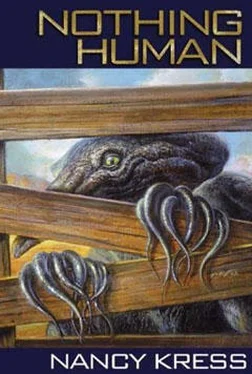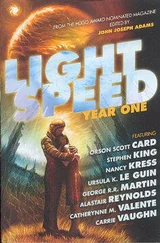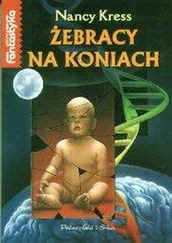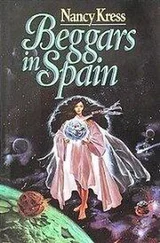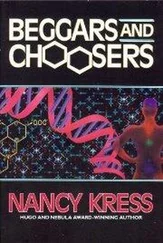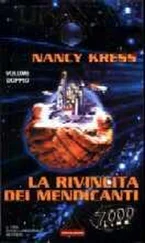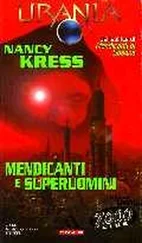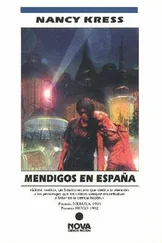Ashley muttered, “Like anybody cares if that old bag Robin gets infected.”
“Shut up,” Taneesha said. The two girls glared at each other. At least, Cord thought, they couldn’t have another fight. Both their bulging bellies would keep them from getting close enough to each other to swing.
The cattle samples showed an engineered virus that Emily had never seen before. She took printouts in to Scott, who hadn’t seen them either. Scott chafed at not being able to work with the live samples, but Lillie, DeWayne, and Emily remained firm. Scott never left the big house to go anywhere, especially not down to the small house taken over as Emily’s laboratory.
“It kills bovine cells, all right,” Emily said, “but I think it’s species specific. Look, here—”
Scott listened. “I think you’re right.”
Jody, hovering in the doorway, said, “How many head are we going to lose?”
Emily answered. “All of them.”
“All? The entire herd?”
“Yes.” Her thin face looked pinched. She knew what it meant. They were all going to have to survive on corn, chickens, and hunted game… unless that went, too. What then? There was enough food stored for maybe six months, but no more than that. The corn, genetically enhanced, gave a high yield as long as it was irrigated constantly. But no more food was going to come in to Wenton for trade.
Jody said, “It’s almost calving time. Will the calves—”
“I don’t know,” Emily said. “Isolate the calves as soon as they’re born, and wash each with dip right away. Keep them from contamination from their mothers.”
He stared at her. “Emily, how the hell can we do that? You’ve never done a calving. There’s blood and what you’d call ‘tissues’ all over the place. You can’t keep the calves from ‘contamination by the mothers.’ And even if they could, the calves have to nurse, for God’s sake. How can we—”
“I don’t know how!” Emily shouted. “That’s your job! Just do it!”
Emily never lost her temper. Dr. Wilkins put a hand on her arm. Emily shook it off. Cord, listening, went to find Keith and Spring, to tell them the herd was going to die and the calves had to be isolated from the milk that would maybe have kept them from dying, too.
Both range crews worked night and day at calving, and they pulled in people who usually had other tasks. Cord, so exhausted that if he stopped moving he fell asleep standing up, had never seen a calving like this. Even Spring, perpetually cheerful, went grimly about the grim business. They were shorthanded because all the female teenagers who usually worked range crew were pregnant. The only women were Lillie, Senni, and Bonnie. Twice Cord caught Bobby, who had a sensitive stomach, vomiting.
Cows, pre-delivery, post-delivery, and not pregnant at all, died constantly. First the animal began to tremble as its nervous system was affected. A few hours later it lay down, lowing in pain. Half an hour after that the cow thrashed on the ground, desperately gasping for air, often breaking its legs in the process. A few minutes later it died.
Dakota and Keith, both good riders, tried to cut the trembling cows out of the herd and drive the animals away from the rest. It seemed to hurt them to walk, but the men kept at it anyway. They forced the cows as far away as possible, then shot them to spare the animals their inevitable agony. The rifle shots terrified the others, as did the smell of the rotting carcasses of the dead.
If the cow was pregnant, Jody and his crew induced labor, trying to get the calf out before the mother started to tremble. Sometimes they succeeded, sometimes not. A few cows died, thrashing, with calves halfway born, and most of these calves died, too. Cord saw his mother stick her hand up a cow whose induced-labor calf hadn’t turned properly and turn it by sheer force. He looked away.
The surviving calves were carried, bleating for their dying mothers, to the antiseptic dip. There was no time to clean up anything. The ground was slippery with blood, placentas, death. The reek and noise were indescribable.
Cord, covered with blood, finally could work no longer. Jody said roughly, “Go lie down, Cord. Now.”
“I can’t, the—”
“Do it!” He pushed Cord toward the bedrolls set upwind. “I’ll wake you in two hours.”
Cord collapsed onto the blankets, not washing first, and was asleep instantly, the smell of dead cattle in his nostrils.
When Lillie woke him, he put out his hand to ward her off, unsure where he was, who she was. “Cord, wake up. We need you to take charge of getting the surviving calves onto the truck and back to the barn.”
He nodded, stumbled upright, lurched back to the pens. The sky had clouded over, low angry clouds, and Cord didn’t know if it was morning or afternoon, or of what day. He set to work. The small, slippery calves, some premature from the induced labor, bleated piteously. One died on the way, falling to the truck bed where the others, packed in, crushed it with their tiny, deadly hoofs. At the barn, taking the calves off the truck and finding the dead one staring at him with open eyes, Cord succumbed. Ashamed of himself, he cried.
Emily, Sajelle, Julie, Carolina, Hannah, and Lupe waited at the barn. Emily showed them how to wash the calves again with the brew she’d concocted, and Cord showed them how to grasp the animals to carry them inside.
“Cord, you smell awful,” Hannah said distastefully, and he was too tired to feel his own anger.
Lupe had learned somewhere how to feed calves. She’d prepared bottles of warm solution designed by Emily for maximum nutrition. Under Lupe’s instruction, the women awkwardly began to hold bottles for the calves, two at a time, while Emily efficiently gave each a shot in the neck from prepared syringes.
“This is a gene sequence delivered by a bovine version of an adeno-type viral vector,” she said to Cord. “It’s tailored to this specific pathogen. It’ll splice in genes to create T-cells with receptors for the pathogenic virus. There’s also expo molecules to drastically increase the frequency of gene expression so that—Cord, are you listening to me?”
“Yes,” said Cord, who wasn’t. He couldn’t focus enough to understand her.
“Never mind,” she said kindly. “Go in and sleep. But wash first. Do you hear me? Don’t go in like that.”
He fell asleep in the yard, beside the outside pump, before he even had his clothes off. Somebody rigged a tarp over him to shield from UV, and he slept.
They saved only twenty calves. Three of those died despite attempts to nurse them. The others fought off the bioweapon micro even when they contracted it. There were seven bulls and ten cows. Eventually they castrated three of the males. Four bulls were a lot, but Jody and Spring didn’t want to risk being without any sperm for the next generation.
That decision was, Emily said, an act of pure unjustified faith that there would be a next generation.
Cord wondered about that. Staring at the surviving calves, he remembered the huge herd of his early childhood, when Grandma Theresa had been alive. It had seemed to Cord then, held firmly on the front of Uncle Jody’s saddle, that the world had been full of living, breathing cattle. All gone.
He turned away from the pen and stumbled toward the house.
Sajelle, thinking ahead to winter, put everyone on rationing, the calories carefully worked out for men, women, pregnant women, children. Cord always felt slightly hungry. He assumed that everyone else did, too, but not even Dolly complained. Even the youngest children understood how close to the edge the farm might be balanced. But there were still—for now, anyway—enough game to trap, enough plants to gather. Wild onion, chicory for coffee, salad greens, agave to make the sweet syrup that Cord loved. Plus, this year’s harvest would be good, thanks to careful irrigation. The chickens, mercifully, didn’t contract any diseases from bioweapons.
Читать дальше
